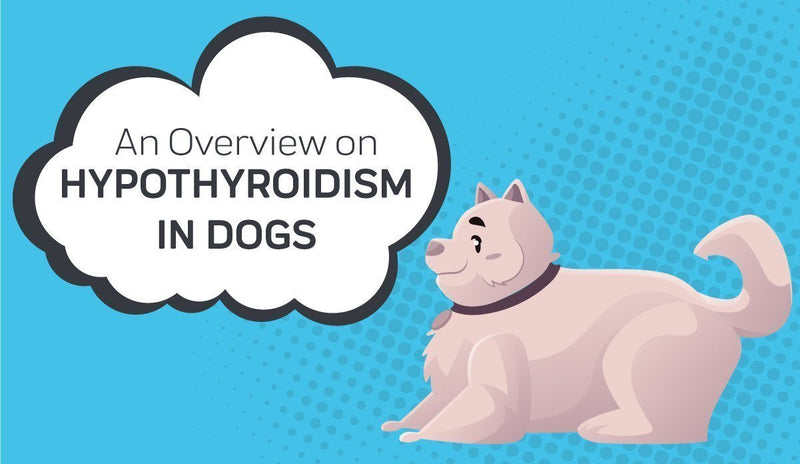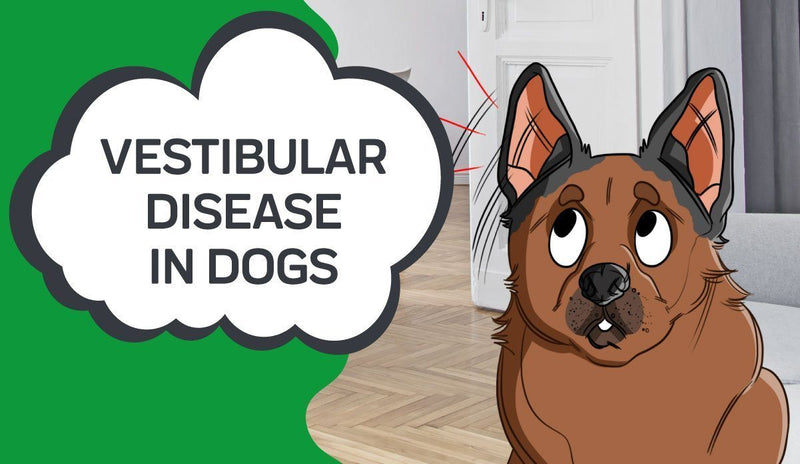Cats are a vital aspect of our lives. We cherish their love and company. Sometimes, unfortunately, cats may suffer with IBS (irritable bowel syndrome) and as a consequence may cause a number of painful or debilitating symptoms.
A shockingly new and powerful therapy for IBS in cats is cannabidiol (CBD). Cannabidiol is a hemp plant extract. Cannabidiol from hemp is highly effective, safe, and natural!
IBS: What is it?

IBS (Irritable bowel syndrome) is a linical condition that’s caused by chronic inflammation inside the GI (gastrointestinal) tract of mammals. It’s the main cause of GI tract problems in felines and is a pretty severe condition.
If left neglected, it may progress to full-blown IBD (irritable bowel disease). In some instances, the words IBD and IBS are interchangeably used, even though they’re two different diseases. IBD is the more severe of the two.
Generally, IBS basically is a “sensitive stomach”. That means your cat simply has a difficult time in digesting their food and has sickly, frequent bowel movements. It also might result in your cat being a “picky eater” as they might not have a healthy appetite because of their IBS.
IBS In Cats
Untreated, chronic IBS may result in a number of other problems for cats. IBS cats is a digestive system malfunctioning, it’ll mean that the feline might not be correctly absorbing nutrients from their food. It may lead to cat malnutrition. Malnutrition may lead to an entire variety of medical issues.
Furthermore, IBS also can cause a compromised immune system. More than 50% of your pet’s immune function is inside their gastrointestinal tract. A dysfunctional gastrointestinal tract results in a weakened immune system.
IBS in Cats: What Causes it?
My cat has IBS, now what?
There are a variety of causes of cat IBS, the most frequent being:

- Deficiencies within the myoelectrical activity of the colon (which means that the cells inside the colon aren’t properly functioning)
- Dietary fiber deficiencies
- Agitation and/or chronic stress (CBD may help)
- Food allergies (CBD assists with allergies) or cat IBS diet intolerances
- Disturbances inside the neural regulation of the colon (which means that the area of the nervous system controlling digestion isn’t properly functioning)
IBS is a general word for a broad condition, which means that it’s possible that the condition is the result of a mixture of the above causes. Taking your pet to the vet will permit you to determine the cause of the cat’s IBS in order for you to more effectively treat it.
Symptoms of IBS in Cats
IBS is prevalent in felines and may cause a number of symptoms which may be extremely distressing for your cat.
They involve:

- Chronic vomiting and/or nausea (IBS throwing up)
- Lethargy, weakness, and/or chronic fatigue
- Bloating and/or pain inside the abdomen
- Dyschezia in cats (a term for constipation)
- Discomfort and inflammation inside the bowel’s mucous membranes
- Mucus and/or blood in the feces
- Frequent passage of tiny quantities of feces
- Chronic diarrhea in the large bowels
Those symptoms may range from mild to debilitating. It also can be a nightmare for a dog owner since the disorder may cause the feline to have very little control over her bowels. Thereby, in many instances, they aren’t able to make it to the litter box before they defecate.
It has symptoms which are similar to a number of additional cat IBS diet disorders and only can be diagnosed as those get ruled out.
They include:
- Tumors in the colon and/or stomach (colonic neoplasia)
- A fungal, bacterial, and/or viral infection (histoplasmosis, pythiosis)
- Ulcerative colitis or inflammatory colitis
- Intestinal parasites (coccidia, giardia)
- Intestinal worms (whipworms)
Once those additional conditions are ruled out, your vet may make an accurate diagnosis. That’s why it’s important that you get your pet checked out if she exhibits any of the above symptoms.
What is CBD and How Can You Use it in the Treatment of IBS in Cats?
CBD is a wellness and health supplement that comes from the cannabis plant. The kinds of plants they utilize to manufacture legal cannabidiol specifically is industrial cannabis (more typically called hemp). CBD oil is made by using the stalks, leaves, and flowers of the hemp plant.
It has become among the most promising, innovative, and thrilling new developments in treating numerous diseases inside the mammalian body.
CBD is a cannabinoid, a group of compounds which play a critical part in the mammalian body. Their main action mode is binding to cannabinoid receptors situated throughout the cat’s body. It’ll result in a broad array of beneficial attributes. Those receptors are a part of the ECS (endocannabinoid system) that’s present inside the bodies of every mammal.
IBS CBD
Your pet easily can metabolize CBD and will suffer virtually no side effects! What’s more, unlike additional cannabis plant derivatives, CBD isn’t psychoactive. That just means it won’t make your pet high. While being high might be fun for some, it usually results in aggression, confusion, and agitation in your pet.
CBD is amazing at helping manage IBS due to its numerous medicinal properties.
Through its interactions with the endocannabinoid system, it may help treat:
- Agitation and/or anxiety (stress)
- Decreased appetite levels
- Vomiting and/or nausea (IBS and throwing up)
- Acute or chronic inflammation (all throughout the body, which includes the GI tract)
- Various pain levels (acute or chronic)
As a consequence, CBD and/or hemp oil for IBS helps manage both IBS symptoms (vomiting, nausea, and/or pain) as well as all underlying disease causes (stress and/or chronic inflammation inside the GI tract). It provides twice the effectiveness, which makes a powerful and potent tool without any adverse side effects. It’ll pack a punch while still being delicate on your cat’s body.
IBD in cat’s natural remedies
Let’s talk about some natural remedies for IBD in cats. Anxiety in cats is a very common issue. An array of factors contributes to this disorder, yet the core cause often is the kitty’s past experiences. There are several prescription medications which have the goal of treating anxiety in cats. But most cat owners like to use natural remedies such as CBD oil for feline anxiety.
Also, there are many herbs which may generate calming effects in cats, yet most cat owners agree that cannabidiol works the most efficiently. The reason for that being the presence of the ECS inside the body of every mammal (which includes felines). The system of channels and receptors flows cannabinoids throughout all major organ system, aiding well-being in a number of ways. CBD is a non-toxic, natural compound with several therapeutic effects, one of which includes calming anxiety.
If you have been wondering how you can use CBD oil for feline anxiety, below we list some critical things you ought to know:
Feline Anxiety: What is it?
Anxiety is the body’s natural reaction to stress or fear. It’s what gets the body ready to take evasive action if needed. It’s referred to as fight or flight response. This response is a crucial part of what assists in keeping animals and humans from danger. However, when this response is routinely triggered by an imagined hazard, it’ll become what’s referred to as an anxiety disorder.
When we, or felines, are anxious, our bodies get ready for fight or flight. It’ll produce adrenaline, increase the heart rate, and gets the muscles prepared for action. As we’re in danger, those reactions assist in getting us out of trouble quickly. When we aren’t, it affects our capability of living a normal life. Serious anxiety disorders may be extremely debilitating, both for humans and for cats.
Behavioral Symptoms of Feline Anxiety
Unfortunately, a feline can’t tell us it’s feeling anxious. But, a cat that has anxiety will show some visible behavioral symptoms.
Below we list some of the more common feline anxiety symptoms:
- Idling still
- Excessive grooming
- Increased vigilance and restlessness
- Increased dependency on people
- Carpet or furniture scratching
- Loss of weight and appetite
- Loud or excessive meowing
- Diarrhea and vomiting
- Soiling in the house
- Aggressive behavior
- Hiding away
- Lethargy and tiredness
Separation Anxiety in Felines
Separation anxiety is the most typical kind of anxiety in felines. Feline separation anxiety is a situation in which cats exhibit anxiety symptoms as they’re separated from their owners. This type of anxiety is more typically related to dogs. Humans usually think that felines are independent creatures. They do not worry if their pet parents are there or not. The fact is that felines do form an extremely close bond with their pet parents. They also are highly aware of environmental changes.
When a feline’s attachment to its pet parent becomes dysfunctional, separation anxiety may become serious. It may lead to behavioral issues. A feline that has separation anxiety might become extremely clingy.
Besides showing common anxiety behavioral characteristics, a feline that has separation anxiety also may exhibit indications of distress as the owner is leaving or getting ready to leave. They’ll want to be with their pet parent all of the time and will oftentimes follow their pet parent from one room to another. They might attempt to get between the door and the owner if they think the pet parent is about to leave.
Over exuberant greetings on their pet parent returning home might be one other tell-tale sign of a feline experiencing separation anxiety. Feline separation anxiety isn’t pleasant for the cat, and it may cause issues at home for the pet parent, as well. Though, there are a few preventative steps to assist in decreasing the onset of a feline’s separation anxiety.
CBD: How Can it Help to Calm Cat Anxiety
 There’ve been several studies on the anti-anxiety impact of CBD. One study discovered that CBD decreases anxiety in those who have generalized social anxiety. Also, the research explains that CBD exhibits “a comparable efficacy to a 5-HT1AR agonist (ipsapirone) or diazepam” for the treatment of anxiety disorders. Both of those are typical anti-anxiety prescriptions.While recreational usage of cannabis may lead to anxiety, the anxiety stems from an additional cannabinoid referred to as THC. THC additionally causes a high feeling related to cannabis. It’s now a fact that cannabidiol has the opposite impact of THC and decreases anxiety. CBD does not have any mind-altering effects and doesn’t get you or your pet “high”.
There’ve been several studies on the anti-anxiety impact of CBD. One study discovered that CBD decreases anxiety in those who have generalized social anxiety. Also, the research explains that CBD exhibits “a comparable efficacy to a 5-HT1AR agonist (ipsapirone) or diazepam” for the treatment of anxiety disorders. Both of those are typical anti-anxiety prescriptions.While recreational usage of cannabis may lead to anxiety, the anxiety stems from an additional cannabinoid referred to as THC. THC additionally causes a high feeling related to cannabis. It’s now a fact that cannabidiol has the opposite impact of THC and decreases anxiety. CBD does not have any mind-altering effects and doesn’t get you or your pet “high”.
Scientists think that the use of CBD may initiate a temporary boost of serotonin in a feline’s brain. Serotonin is an essential hormone that balances our happiness, sense of well-being, and mood. An increase in serotonin may assist in improving your pet’s mood which, as a result, should relieve anxious behaviors.
The advantages of CBD for feline anxiety have been proven in clinical studies on animals and humans alike. Studies are ongoing into the multiple therapeutic effects of CBD. CBD’s effectiveness for cats also has been confirmed by the great quantity of anecdotal proof given by pet owners. If you own a cat, utilizing CBD for her anxiety might be the best method of calming your cat and giving her a higher quality of life.
How to treat IBS in cats
The traditional IBS treatments are mainly outpatient procedures. But if the IBS progressed to a point that your pet is seriously malnourished and/or dehydrated, they must be admitted into a vet clinic. Cats typically will be there for a couple of days while they nurse the cats back to a suitable health level. They’ll likely suggest a dietary routine that helps manage the pet’s IBS.
Unfortunately, IBS isn’t a curable disorder. It effectively can be managed, even though there isn’t any single treatment and your vet will likely require a mixture of numerous therapies.
Those include:
Dietary Changes and Management
Cats with IBS what to feed? If your feline has IBS, your vet might require a hypoallergenic food trial. Basically, this is a process of elimination in figuring out what type of food is leading to the GI distress. You’ll need to feed the cat a protein (like duck, venison, or rabbit) and carb diet. They want to restrict their food consumption to only these sources.
If your pet’s condition improves, you know they’re able to tolerate that particular food well. Other diet changes might involve foods which are low in fat, high in fiber, and easily digestible. Additional factors which influence this diet might involve your cat’s age, level of activity, breed, and/or any other clinical conditions.
Does Prednisone Help IBS?
Keep in mind that IBS mainly derives from chronic inflammation inside the GI tract. As a consequence, a commonly prescribed medication is a corticosteroid referred to as prednisone. Your vet also may prescribe immunosuppressive drugs or antibiotics. They’re used in the treatment of infections and chronic auto-inflammatory reactions inside the GI tract, respectively.
Recent studies also have indicated that prebiotics and probiotics are helpful in creating healthy gut flora. It’s the word for the numerous beneficial bacteria which reside in the mammalian digestive system, as well as aids your cat in food digestion.
Stress Management and Maintenance
Stress is a huge IBS trigger. As the mammalian body gets stressed out, it’ll release a number of hormones needed for survival responses. But, if this stress is chronic, these hormones may begin to have deleterious effects on a body.
Anti-anxiety meds might be prescribed to assist your cat in better handling their stressful environment. Routine human interaction, as well as healthy stimulation through play, toys, and consistent exercise also will redcue the levels of those stress hormones in your pet’s body.
The most efficient maintenance for IBS in felines typically comprises of a blend of these different approaches. CBD is especially useful because you easily can supplement in all or any of those treatments without having to cause any sort of negative interactions. As a matter of fact, it only will increase the efficacy of additional treatments or drugs.
CBD: Is it Safe for Your Pet?
Absolutely! As a matter of fact, it’s very safe for your pet. It’s impossible for your pet to overdose on and if you administer too high of a dose, your pet will just sleep it off.
Furthermore, you ought to consider businesses that routinely test their products like Innovet Pet Products.
That testing includes:
Potency
It’ll ensure that the correct CBD concentration is present in every product sold, therefore resulting in precise dosage amounts. What’s more, it’ll ensure that it’s possible to effectively and safely treat your cat. Every batch is tested further for numerous cannabinoids and their amounts, which includes cannabinol, cannabidiolic acid, cannabigerol, cannabichromene and tetrahydrocannabinol.
Pesticides
The hemp utilized for CBD generation has to be grown then harvested like any additional plant. All of the CBD products that are sold by Innovet are 100 percent pesticide free and organic. That means during no point in the process of harvesting are there any pesticides being used.
Residual Solvents
Innovet uses carbon dioxide extraction for the making of their CBD products. It’s a green technique that’s eco-friendly. In this process, extractors filter out all dangerous toxins and/or chemicals from the end CBD product.
All these tests are undertaken by 3rd-party entities for Innovet Pet products to obtain COAs (certificates of analysis).
Sources:
Inflammatory Bowel Disease in CatsInflammatory Bowel Disease
Disorders of the Stomach and Intestines in Cats
Irritable Bowel Syndrome in Cats
Cannabidiol Reduces Intestinal Inflammation through the Control of Neuroimmune Axis
Approved by:
Dr. Sara Ochoa
Doctor of Veterinary Medicine, St. Georges University

Thanks for stopping by!
P.S. We Love You!
Sincerely,
The Innovet Team
Please do not ask for emergency or specific medical questions about your pets in the comments. Innovet Pet Products is unable to provide you with specific medical advice or counseling. A detailed physical exam, patient history, and an established veterinarian are required to provide specific medical advice. If you are worried that your pet requires emergency attention or if you have specific medical questions related to your pet’s current or chronic health conditions, please contact or visit your local/preferred veterinarian, an animal-specific poison control hotline, or your local emergency veterinary care center.
Please share your experiences and stories, your opinions and feedback about this blog, or what you've learned that you'd like to share with others.
















